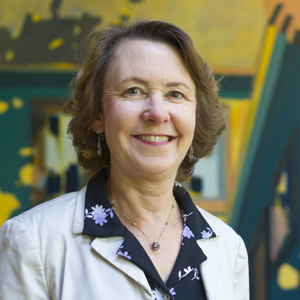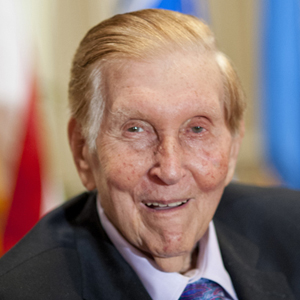The culture of ancient Greece is alive and well and living conspicuously, for those who pay attention, in the sciences, arts, architecture, politics, and philosophy of our everyday world. Now, thanks to a gift from Maria Stata (CAS’62), that enduring influence will be even more greatly appreciated by students and scholars in the College of Arts & Sciences.
The $2.5 million gift creates the Maria Stata Professorship in Classical Greek Studies, which will support a distinguished senior faculty member with scholarly and teaching expertise in the classical period of Greek history. And while the University has a sizable community of scholars who focus on ancient Greece from several perspectives, including classical studies, history, and political science, the inaugural Maria Stata Professor is David Roochnik, a CAS professor and chair of philosophy.
“Ancient Greece is a living world,” says Roochnik. “It is filled with spectacular ideas that are as important and powerful today as they were 2,500 years ago. No one should miss it.”
“This wonderful gift from Maria Stata will make a significant and lasting difference to our classical studies program,” says BU President Robert A. Brown. “It will ensure that students for generations to come will be able to study under accomplished scholars in this important interdisciplinary field, and I very much appreciate Maria’s recognition of the value of classical studies and her dedication to her alma mater.”
Stata, whose husband, Ray Stata, is cofounder and chairman of semiconductor and signal processing company Analog Devices, asked that her gift support a professor who would ensure that undergraduates who may not be majoring in classics have the chance to study the mark of ancient Greece on Western civilization, says Virginia Sapiro, dean of Arts & Sciences and a professor of political science.
“Mrs. Stata wanted to support Boston University’s ability to educate students about that important society and its contributions to culture, art, architecture, philosophy, science, and literature,” Sapiro says. “Indeed, these influences remain profound today, although most of our students may not know it if they don’t study it.”
Asked why he believes that students should study ancient Greece, Roochnik cites a scenario posed by Pulitzer Prize–winning writer Don DeLillo in his novel White Noise: What if you were hurled into a time warp and came face-to-face with an ancient Greek, whose people invented trigonometry and conducted autopsies and dissections? DeLillo writes, “What could you tell an ancient Greek that he couldn’t say, ‘Big deal’?”
















































My love for Ancient Greece began and has endured to this day because of two books I read at age 18: “The GREEKS” by Kitto and “The Splendour of Greece.” Seven years living in Greece with my base in Athens opened an incredible world of pure, sweet, unadulterated knowledge-GNOSIS. I agree with DeLillo when he says, “What could you tell an Ancient Greek that he couldn’t say, “Big deal?”
Congratulations to all involved in the establishment of this new chair. Excellent idea. Hopefully many thousands of BU students will appreciate the Greek contribution to our civilization as a result of this effort. Certainly my daughter, CAS’12, benefited from her BU experience, but more appreciation of her home culture would have improved her education. Thank you.
Fabulous! No one worthier of such an honor. Congratulations, David! And the idea behind this endowment is also remarkable, a signal contribution to the Humanities at BU.